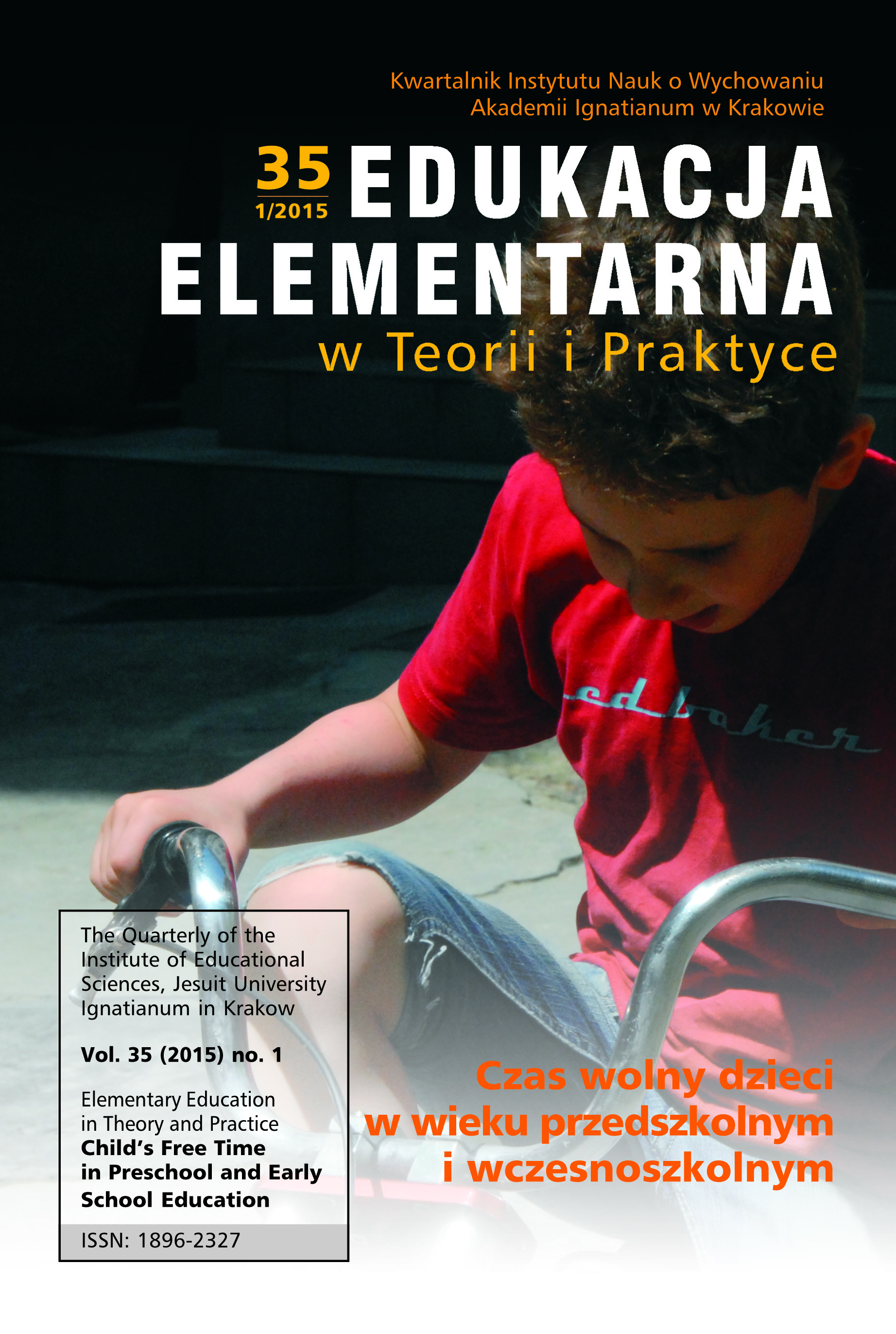Wybrane aspekty czasu wolnego uczniów klas I–III szkoły podstawowej
Selected Aspects of Free Time of Students in Grades I–III Primary School
Author(s): Marek BanachSubject(s): Social Sciences, Education
Published by: Uniwersytet Ignatianum w Krakowie
Keywords: free time; children’s leisure time; function of free time; ways of spending free time; leisure;recreation;
Summary/Abstract: This article explores the concept of free time, including its various functions and aspects. Free time is time that fulfils various complementary functions within the life of every human being. According to the literature on this subject, leisure time has four basic functions: rest, entertainment, the development of one’s interests and abilities, and the search for one's place in society. The concept has been defined in a variety of disciplines from economics to pedagogy, where it occurs relatively frequently. There are, inter alia, definitions distinguishing free time by age group: for example, the leisure time of children, young people, adults and the elderly, respectively. In each group, in spite of numerous similarities, there are also quite a few differences. The term is understood as time spent away from work or study, from the responsibilities associated with work, school and home, or from physiological activities. This is time intended for rest, relaxation and the renewal of one’s vitality, and for mental and physical relaxation after work, school or other activities such as require a particular effort. The present elaboration focuses primarily on children's leisure time. I present its special characteristics and conditions. Furthermore, I attempt a closer view of the theoretical issues specifically connected with leisure time as it pertains to children from primary-school classes I to III, taking account of their actual preferences in this area on the basis of the currently available research. The article presents various ways in which free time is spent by children and young people, from fun and games to the various forms of social and family life. Attention is drawn to conventional ways of spending free time, such as participation in artistic groups, and to those that increasingly show up in research publications, such as the spending of one’s free time in shopping malls, or attendance at martial arts classes.
Journal: Edukacja Elementarna w Teorii i Praktyce
- Issue Year: 10/2015
- Issue No: 1 (35)
- Page Range: 193-208
- Page Count: 16
- Language: Polish

